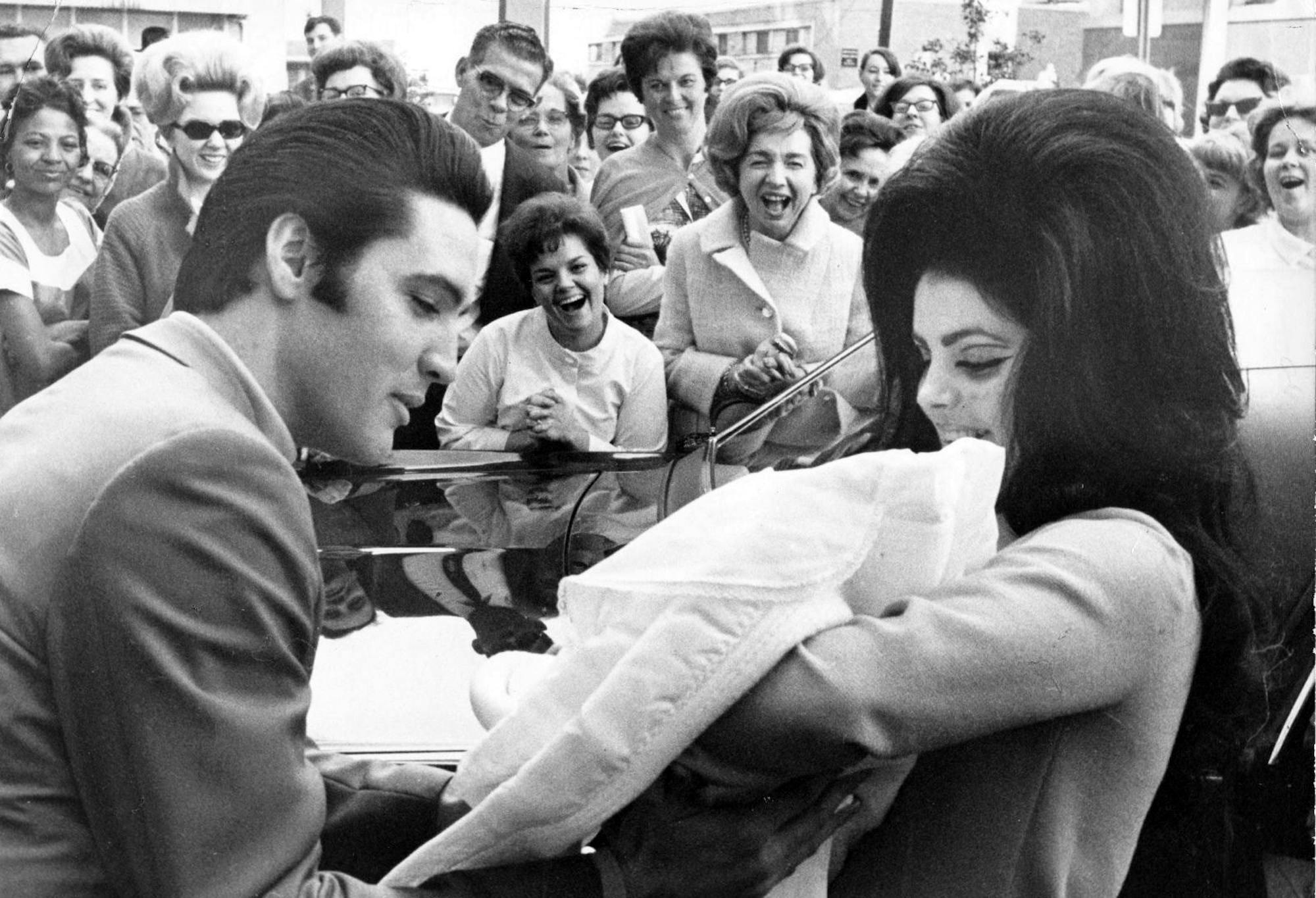In a world distant from a glamorous life on tour, Priscilla Presley waits in the softly lit rooms of Graceland. For many years, Priscilla was a shadow of her adored husband. The world’s eyes were on him and her life was a mystery. In Sofia Coppola’s “Priscilla” (2023), her bittersweet life story is finally told through a quietly alluring film.
Priscilla Presley is the ideal muse for Sofia Coppola, whose films reveal the internal lives of Rapunzel-like figures. Shown from the beginning as a girl on her own, Priscilla’s narrative retains a sense of loneliness even amid the exciting changes in her husband’s music career. Her relationship with her own freedom shifts throughout the story, as there are points where she has more and less control over her life. As a teenager living abroad in Germany, she is initially under the rule of her parents and her budding romance with the already notable Elvis Presley is strictly surveilled. The age difference between the two is made apparent in the scene of their meeting, and the nature of their relationship is unsettling from the get-go (the audience was audibly displeased by Elvis’ advances towards Priscilla). Her infatuation with him, though, is sweet and pure, despite our awareness that he should know better. Priscilla’s rosy perspective fills the movie with a gentle dreaminess and sense of hope, even when she feels suffocated by Elvis’ rock and roll lifestyle.
The most precious and revealing moments of the film are of Priscilla’s isolation, which hold a certain beauty and depth characteristic to Coppola’s depictions of her female protagonists. While at Graceland, she outwardly assumes the role expected of her. She dyes her hair, changes her look and is designed as an accessory to her husband. It is saddening to see the way she is molded in accordance with Elvis’ wishes and how she is kept at home with little regard for her personal interests. The disparity between the liveliness and affection she experiences when Elvis is at Graceland and the quietness of his absence is emphasized in the structure of the film, reflecting the switch between two extremes Priscilla felt in her marriage. In this context of loneliness, shots of Priscilla playing with her dog, painting her nails and looking out the window are given a special essence of individuality. What Priscilla filled her time with at Graceland was no less worthy of attention than the concurrent performances Elvis was giving at venues across America. This time alone is simultaneously comforting and disheartening, as it reminds us of our heroine being ignored and devalued by the people around her. She is not even allowed to chat with the receptionists of Elvis’ office without being told to return upstairs and continue waiting for her husband.
The vignettes of Graceland through Priscilla’s eyes are warmed by her presence there. She was loved by Elvis’ family, friends and employees, though not entirely seen. As a mother, she gained strength and companionship from her daughter, and it was for her sake that she eventually left a life of neglect and abuse. The absence of the fame and glory portrayed in Baz Luhrmann’s “Elvis” (2022) creates space for a familiar yearning feeling and contemplation of time. Thinking back to Priscilla’s teenage room feels particularly nostalgic by the end of the film, when we see her driving away from the place and the man she once dreamed of.
There are parts of Priscilla’s narrative that could’ve been included for a greater understanding of who she was — hearing more of her thoughts, or even an excerpt of her diary, could have enriched the shots of Priscilla simply existing as herself. Coppola’s signature style did lend itself to greater character depth, though, as the camera often focused on what Priscilla found important or beautiful. “Priscilla” captures the feeling of lost youth and innocence so subtly that it leaves one questioning the movement of their own life.






